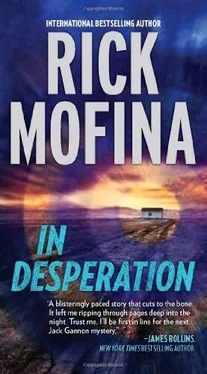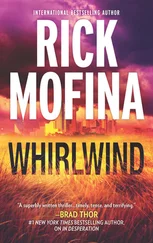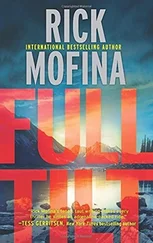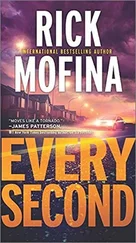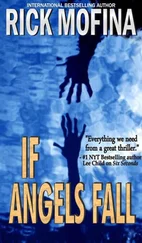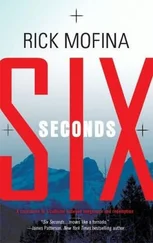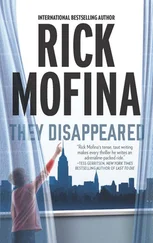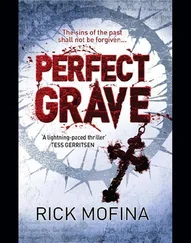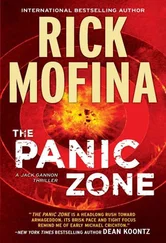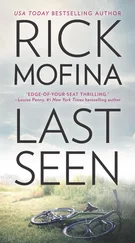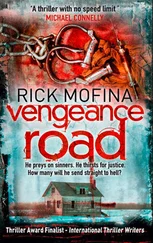“No! This is a mistake! Are you looking for drug money? Lyle’s not involved with drugs. I’ve got nothing to do with drugs. This is all wrong-it’s a mistake. Please leave us alone! I don’t know what you’re talking about!”
“We can’t find him. Where’s the money?”
For the next thirty minutes the invaders ransacked the house. What did they do with Tilly? They must’ve tied her down.
Or worse!
“Where is our money?”
“Did you hurt my daughter?”
“She’s not hurt. Where is it?”
“I told you this is wrong. This is a mistake!”
“Listen to me. You will find Galviera and tell him to return our money.”
Sobbing, Cora shook her head.
“This is a mistake. I don’t know anything about this.”
“You know. You do the books for his company.”
“No. No. I’m the office manager, the secretary. I know he left a few days ago for business in San Diego, then in Los Angeles.”
“He is not in California.”
“But I made the travel arrangements. Please, I don’t know what you’re talking about. Please leave us alone. Please. This is a mistake.”
“No mistake.”
The first man turned to his partner. After speaking in rapid Spanish to him, the man left the house and returned with a large suitcase they placed before Cora.
“Remember,” the first man said. “Do not scream.”
The second man went down the hall to Tilly’s room. Seconds later Tilly emerged, her mouth covered with duct tape, eyes popping with fear as they met Cora’s.
Tilly was in her pajamas with the unicorn pattern; her wrists were taped in front of her in a praying position as she hugged a hastily balled collection of items. Cora could see jeans, a pink shirt and white sneakers. Was that her toothbrush sticking from the heap? It was as if she were rushing off to a sleepover.
Fear twisted Cora’s stomach.
“It’s going to be okay, honey.” Cora tried to comfort her as the second man opened the large suitcase and positioned Tilly inside, bending her knees to her chest, then zipping her closed as if he were a magician preparing a trick.
“What are you doing?” Cora raised her voice. “Wait! No.”
The first man drew his weapon and pointed it at the bag where Tilly’s head would be, moved his finger to the trigger and turned to Cora.
“Have you forgotten your need to shut up and listen?”
“Yes, please, please don’t hurt her. I’m begging you.”
“If you do as we say, she will not be harmed. Understand?”
Cora nodded.
“We are taking your daughter with us.”
“No. Please!”
“Listen carefully. Lyle must return our money, or your daughter will die. And if you go to the police, your daughter will die.”
“Tilly, sweetie, everything will be okay. Do what they say. Tilly, I love-” Tape was replaced on Cora’s mouth.
“Your binding is not that tight. You should be able to free yourself in a few hours,” the first man said. “We will return your daughter unharmed after Lyle Galviera returns the money he’s stolen from us. He has five days.”
The men left with the suitcase holding Tilly, leaving Cora alone, bound to a chair, sobbing in her kitchen.
Ciudad Juarez, Mexico
An anguished cry rose from the morgue’s viewing room.
“Mi hijo! Mi hijo!”
Paula Chavez bent over the corpse of a young man in his late teens, her son, Ramon. Her face creased with pain. She stared into his open eyes then at the bullet holes in his tattooed chest. Helpless against the horror, she caressed his face and pressed one of his cold hands to her cheek.
It was evocative of Michelangelo’s Pietà, Jack Gannon thought, watching from across the room.
He turned to Isabel Luna, who had raised her camera to shoot several frames of Paula Chavez. At times, the priest and morgue workers had to steady the grieving mother, who was now childless.
Ramon was sixteen. He’d been Paula Chavez’s last living son.
She’d already lost two others to the violence this year.
The sorrow in the air was as biting as the smell of chlorine and the reek of death.
For much of the day, Gannon and Luna had been riding along with forensic experts and coroner’s staff, pinballing from homicide to homicide, when they had come to the fringe of a squatters’ village. Paula Chavez was in a ditch on her knees weeping at the crime scene tape near her son. A priest prayed alongside her while windswept garbage and desert dust enshrouded them.
The priest brought Paula to the morgue. A coroner’s van brought her son. Gannon and Luna had followed them here, where workers had set Ramon’s corpse on a table next to the bodies of six other people murdered across the city so far that day.
Now, after taking half a dozen pictures, Luna lowered her camera and indicated to the pathologist who’d granted access that they were finished.
Gannon and Luna stepped outside into baking heat as another coroner’s van delivered two more white body bags strapped to gurneys.
Another corpse, another coffin, another grave. Another day in Juarez, a battlefield in Mexico’s drug wars.
Welcome to Murder City.
Gannon slid on his dark glasses, and as he and Luna walked to his rented Ford he reflected on Paula Chavez. She lived in a shack and earned less than ten dollars a day running a tiny hamburger stand. She’d lost her husband and sons to the violence. Gannon thought of the pain carved into her weatherworn face, the agony of her cries, how she embodied the toll exacted by the carnage. These images burned into his memory. The impact of random cruelty . Throughout his years on the crime beat he hammered the heartache he bore for people like Paula Chavez into a quiet rage that he used to fuel his work.
Gannon was a journalist with the World Press Alliance, the global wire service headquartered in New York City. He’d been dispatched to Mexico to file features in the WPA’s ongoing series on the drug wars. Correspondents from the WPA’s Mexican, Central and South American bureaus had provided exceptional coverage, but his editor, Melody Lyon, wanted more for a new series.
“The cartel wars have been spilling into U.S., Canadian and European cities with increasing violence. We need to understand why this is happening,” Lyon had told him. “We need you to take WPA readers beyond the statistics, the corruption and the bloodbaths. Take us deeper. Find the human faces on all sides. Take us into the inferno.”
As part of his research before leaving Manhattan, Gannon had contacted Isabel Luna, a crime reporter with El Heraldo, a small family-run newspaper in Juarez known for its courageous reporting.
Few knew more about crime in the region than Luna.
Her father, the paper’s editor, had been murdered several months ago for exposing cartel ties to corrupt officials. His death left Isabel defiant and forged her determination to continue his crusade. She did not hesitate to respond when Gannon called in advance of his arrival.
“I propose we work exclusively together while I’m in Juarez,” he said. “Your English is better than my Spanish and I admit I’ll need help. In exchange, I’ll share the resources of the WPA. We could buy your photos or pay for joint work on exclusives.”
“Call me when you arrive,” she said.
During their first meeting in El Heraldo ’s hectic and cluttered newsroom, which had reminded Gannon of his campus paper in Buffalo, he told Luna of the stories he had in mind.
“I’d like to profile you.”
She blushed and a crooked smile nearly blossomed on her face. It waned when he told her of the other story he wanted to do.
Читать дальше
